With the 2015 NHL draft in the books, everyone's attention now turns to how their respective teams fared over the weekend. The NHL draft is all about the future talent of the league, and the names called over the past couple of days have the opportunity to make an impact within their respective organizations.
Below I've assigned a grade to each of the 30 teams for the talent they managed to acquire, along with a scouting report on their top pick and their Day 2 selections.
Note: These grades are based solely on the picks made, based on my evaluations of the players, and from any trades or other moves made during the weekend. Total value is the basis for the grade. We do not assess teams' alternative options at a slot or their fit into an organization in this grade.
To navigate to a specific team directly, select the name below:
Ducks | Coyotes | Bruins | Sabres | Flames | Hurricanes | Blackhawks | Avalanche | Blue Jackets | Stars | Red Wings | Oilers | Panthers | Kings | Wild | Canadiens | Predators | Devils | Islanders | Rangers | Senators | Flyers | Penguins | Sharks | Blues | Lightning | Maple Leafs | Canucks | Capitals | Jets
A grades
Edmonton Oilers | Grade: A

Organizational assessment: The Oilers could have probably drafted a tree, a puck, two posts and a hockey stick after Connor McDavid and still would have had a good shot at an A, but adding solid defense prospects such as Ethan Bear and Caleb Jones was the icing on the cake. This draft has the potential to finally, finally bring the organization out of the dark ages.
Top pick: McDavid is one of the best pure skaters I've ever seen. It's incredible how effortlessly he accelerates to an extremely dangerous full speed. He'll step into the NHL next season and be one of his team's fastest players.
His puck skills are also of that same extremely high grade. He makes some unique puck plays. McDavid also has elite hockey sense, so on top of knowing how to make defenders miss left and right and set up his teammates, this also lets him be an elite forechecker when combined with his skating. He follows the play off the puck so well that whenever he's on the ice -- even when the other team has the puck -- you're still expecting a McDavid scoring chance.
He's a relentless worker, and that quality thrown in with some of his others makes him a very dangerous penalty killer, as well. McDavid slides into the Oilers' top six right away, giving them much needed center depth and the best pure talent the organization has had in a long time. This immediately changes their organizational direction and makes them as close to a playoff team as they've been in a long time.
Day 2 picks: Caleb Jones' play improved as the season went along. He's a gifted athlete who skates well, creates plays by himself and can make plays at both ends of the rink. His positioning can use some tweaks, but he can still make defensive stops.
Bear is a well-rounded prospect but doesn't have standout attributes. I've seen him get burned at times to the outside, but overall he's able to stay with his checks and is solid on defense. He's not a great skill player, but he can make some plays and has good offensive IQ.
Svoboda's skill level isn't skill high, but it's above-average, and he sees the ice well.
Paigin is intriguing due to the fact he's very mobile for a 6-foot-6 D and has a little skill -- and a bomb of a shot to go with that.
Toronto Maple Leafs | Grade: A
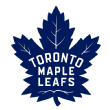
Organizational assessment: Toronto got a ton of skill at this year's draft, and while the Travis Dermott pick was slightly high for me, overall the talent infusion from Mitch Marner, Jeremy Bracco, Dermott and several other picks change the complexion of this system. Adding this group of highly skilled forwards to William Nylander, Brendan Leipsic and Connor Brown gives the Leafs one of the best groups of forward prospects in the league.
Top pick: Marner's speed, acceleration and edge control are all high-end, and because of that, you rarely saw an OHL defenseman land a clean check on Marner. His puck skills are elite, and he can make great in-tight plays to evade pressure, dekes in full stride to get around a defender or puck plays off the half-boards that create offense in bunches.
Marner is also an incredible passer, making quick reads with the ability to stretch the ice or move it across laterally through traffic with consistency. While small, his defensive game is solid and improved quite notably over the course of the OHL season to where he became one of London's better penalty killers.
Marner joins a gifted group of forward prospects, providing the organization a huge boost of skill, speed and hockey intellect. The organization now has two foundational scorers in Marner and Nylander to start this rebuild to add to a young player like Morgan Rielly. They still need more, though, and this is the beginning of a lengthy building process. Marner likely needs another year in Junior but could make things interesting in camp next year.
Day 2 picks: Dermott is a two-way defenseman but his value is tiled more toward offense. He rarely forces plays and makes good outlets under pressure. He's slightly undersized, but Dermott does battle hard for pucks and shows fine defensive IQ.
Bracco is an exciting -- albeit very small -- winger who can take over a game. He's a high-end skate, very coordinated and draws your attention with the way he creates offense out of nothing. Scouts refer to him as an "assist machine" due to his talent level and his very creative playmaking style. Bracco is quite solid defensively and in my viewings has been effective killing penalties and as a short-handed scoring threat. His 5-foot-9 frame is an obvious drawback, especially since he's not an overly abrasive type of player.
Nielsen is a big defenseman who defends well, and while he's not a standout offensively, he shows spurts of creativity. His puck skills are lackluster and limit him, though, even if he skates well for a big man.
I didn't rank Dzierkals too high, but that was in part due to lack of viewings. He showed above-average speed and skill at the Under-18s.
Lindgren is a dynamic offensive defenseman. He skates well, and is a great power play quarterback. His decision making can be a little hit-and-miss with the puck, though, and he needs a lot of work defensively.
Timashov is a very good skater with explosive acceleration and speed, and combined with his puck-handling skills, this makes him very threatening off the rush. He can force plays at times; overall he makes a lot happen. He's another undersized guy, with the requisite issues in one-on-one battles and in the defensive zone.
Desrocher was good this season, but he was an overage player. He's big with fine touch for a larger defender.
Korostelev is a pretty good physical forward with a filled-out frame but can play a perimeter game, as well, due to his impressive hands and vision. He also has a high-end shot, as his one-timers generate a ton of velocity. His skating is a bit of a knock, as he lacks a separation gear coming down the wing.
Arizona Coyotes | Grade: A-

Organizational assessment: Picking third overall always helps to build a strong system, but the Coyotes made several other strong picks over the weekend. Nick Merkley, Jens Looke, Connor Garland, Christian Fischer and more add a ton of talent to the system. While they won't get there for a few years, for a team that is really hard hit for offense, there is more on the way.
Top pick: Strome was one of the very top scorers in the OHL this season, and while many point to the teammate effect with McDavid on the same team, he didn't play with him much at even strength yet still managed a roughly 1.5-points-per-game pace when McDavid was hurt.
Strome is a great stick handler, especially for a 6-3 player, but he's also smart with the puck. He slows the play down very well, passes at an elite level and operates well in tight spaces. He's not great defensively yet, although he's fine on the draw and could project to have decent defensive value down the line. Strome's main weakness is his skating, as he lacks an explosive top gear and is just roughly average in that area overall.
Dylan Strome becomes the top prospect in the system, ahead of Max Domi and Anthony Duclair, providing size and elite skill up the middle. He could challenge for a spot next season on such a poor forward group, but it will be a "we'll see" thing at the Coyotes' camp.
More: Merkley had a very impressive season as one of the WHL's top scorers. He's a high-end offensive weapon who can make a wide variety of plays to generate scoring chances and is a dynamic puck handler with very soft hands and a high level of creativity.
In games I've seen, he's looked like just an above-average skater, but several scouts I talk to describe him as great in that area. His 5-11 frame isn't ideal, but he works hard in puck battles, has a fine strength level and seems to have the character components to overcome his size. His defensive play has also shown immense improvements from 12 months ago.
Merkley and Strome give a much, much-needed offensive boost to their organization. I mean, look at the forwards they were rolling out there last season. That won't change much right away, but it's a much-needed addition.
Day 2 picks: Fischer has size and skill and immediately draws eyes when he's on the ice. He doesn't have elite puck skills, but he's pretty coordinated and creative. I've seen flashes of above-average skating, but he's not that explosive out of the gate. Fischer can be very effective when he drives the net and uses his body, but his physical game is somewhat inconsistent.
On a brutal team, Capobianco has been able to generate offense from the back end with a very impressive combination of skating and skill. He has some two-way ability and a little bite, but his defensive reads and overall decision-making could use some work.
Warren is a very good skater with size who can PK well and be OK off the rush. His skill isn't great, but he showed flashes here and there of offense.
Looke trended up this season, establishing himself as a regular at even strength for Brynas, and made Sweden's WJC team. He's a highly skilled playmaker and a shifty forward. He's a fine skater and is technically sound with above-average speed. Looke can win some battles despite not being overly physical. His reads aren't always perfect, as he can force some decisions.
Garland is an electric offensive talent. Overall, he understands all the different ways he can create offense and processes that information quickly. He's not a blazing speedster, but he's shifty with a good burst and edge control. His size is the obvious flaw and likely why he was passed over last year.
Buffalo Sabres | Grade: A-
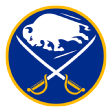
Organizational assessment: Jack Eichel obviously provided a ton of value to the Sabres and instantly vaulted them into the A-range, but I didn't love their Day 2. The prospects they pick have talent, but to me they're either projects or guys without a ton of upside. Eichel changes their organization drastically, but I don't think the rest of the system changed much on Day 2.
Top pick: Eichel is one of the very best college freshmen of the modern era. His skill level is elite, and it's off the charts for a 6-foot-2 forward in terms of the amount of high-level plays he makes regularly. He makes evasions seem effortless; I often hear from scouts that he looks "bored."
He's strong, works hard and thinks the game at such a high level that he creates chances in bunches. He's also a very good defensive forward who has often been one of his team's top penalty killers. He skates very well with an explosive first few steps and a smooth glide you don't see often with bigger players.
Eichel will go right to the top of a poor Buffalo lineup and become the best pure talent in the organization, with more upside than Evander Kane, although obviously not as proven. He and Sam Reinhart become a dangerous one-two center punch in prospects, obviously depending on the future of a player such as Cody Hodgson with the team.
Day 2 picks: Guhle is as mobile as some of the best defensemen available in this class. He's not a dynamic offensive player in the WHL but shows flashes of his skill and puck-moving abilities. He is decent defensively, showing fine reads, but he's not that tough on his checks.
Borgen won't blow you away with great puck skills, but he's a very smart two-way defenseman with decent size and skates very well. He's a defense-tilted player who can move a puck.
Devante Stephens is a pretty smart, mobile defender. His puck skills aren't the best, and he doesn't project as a point producer. He took on a decent chunk on tough minutes this season, though, often playing up in the Kelowna line up.
Estephan has the potential to make me look foolish for not putting him in my top 100. He's pretty skilled and is quality defensively, too. His skating is just really lackluster.
Carolina Hurricanes | Grade: A-

Organizational assessment: Noah Hanifin is an elite prospect for the Canes, but their Day 2 also saw them bring in some high-upside forward prospects, which provides much-needed depth for a previously thin farm system. A guy such as Nicolas Roy is risky, but the former 1st overall QMJHL pick could potentially provide dividends.
Top pick: Hanifin is an elite all-around defenseman. He's a high-end skater who moves incredibly well for a player of his size. His first few steps are explosive, with as much power out of his pivots and crossovers as you'll see in a defenseman.
His puck skills and offensive IQ don't blow you away, but he's very good in those areas. Hanifin can make the quick passes, lead a rush in a dynamic way and makes good decisions with the puck. Defensively, he closes his gaps well, uses his stick effectively and projects as a player who can stop good forwards. Overall, his game is a high-tempo, high-energy style, though he's not the most bruising defender.
Hanifin is arguably the third-best pure talent in the class, but I slotted him 5 due to position. Even with top picks such as Haydn Fleury andRyan Murphy in the organization, Hanifin stands out clearly as the best young D in the system. Carolina in my opinion is close to coming out of these past few years of misery with a decent core of young players. With some rebound years, the Canes might be back sooner than later.
Day 2 picks: Aho skates pretty well, and while he doesn't have blazing speed, it's certainly above average and enough to pressure defensemen off the rush. He's a very skilled and smart offensive player who won't make overly flashy plays but makes quick, creative decisions and moves the puck very well. Aho's hockey IQ translates well to defense, where he's shown during international play he can be quite effective, even when playing ahead of his age group. The main issue with Aho is his physical game.
Booth plays his angles well and takes shooting angles away pretty effectively. His movements aren't too nimble, but he moves fine for his size and is able to get across the crease.
At one point, Roy was thought to be a sure-fire elite NHL prospect but didn't have a great season. Roy's hockey sense is very high in terms of how he sees the ice, anticipates how to create chances and reads defensive cues. Roy is a decent skater, fine for his size, but has a bit of a low-energy style in which he isn't fully exerting his stride; his first few steps could also use work. He'll win battles, but he should win more for a player with his frame.
Stevens is a big, 6-4 forward who skates like he's 5-11 and competes well. He's a clumsy puck-handler, though, who is a north-south player.
Spencer Smallman turned heads at times this season. He works his butt off, shows value at both ends and has a solid level of offensive skill.
Cotton is a player who shows above-average raw possession abilities between his puck skills and offensive creativity. He has good size, but scouts point out he's not particularly tough in battles.
New York Islanders | Grade: A-
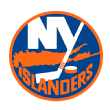
Organizational assessment: For a team that came into the draft without many high picks, the Islanders left Florida with one of the best hauls after being aggressive in trades. They added a ton of highly skilled forwards and defensemen, shooting for upside and players who can score. The Isles system has taken a hit recently due to graduations after being among the league's best for many years, but this draft has helped fill that depth chart quickly.
Top pick: Barzal has an explosive first step, high-end top speed and edge work that is among the most impressive of his age group. Barzal's skill level is also pretty good, with his vision and playmaking being standout attributes. He's patient, creative and shifty with the puck. He's not an incredibly physical player but shows great energy and effort on the ice at both ends. He is often one of his team's top scoring-chance creators and penalty killers.
Barzal is worth the price of former Griffin Reinhart and a good argument he's a better prospect. He's so dynamic and becomes the Islanders top prospect immediately. Injuries put some questions on his season, but when healthy, he showed he was elite. The Islanders have a ton of great young forwards, but the value at 16 was too good to pass up for them.
Day 2 picks: Vande Sompel had a very interesting season. For the most part, he was Oshawa's top defenseman, but when needed, he actually shifted to be the team's top-line center as an injury replacement. He's a great skater, shows the comfort leading the play and attacking, as one would imagine for a player who grew up a forward. He is at a very high level in terms of his hockey IQ. He's quite advanced defensively given his development track and quite effective positionally for a smaller player.
Wotherspoon is a good skater, is creative and sees plays developing well offensively. He's about average in the defensive end, as he shows some impressive reads but gets beat a little too often. Wotherspoon will get involved physically, but his frame betrays him in one-on-one battles.
Pilon is a skilled puck mover who can be dangerous off the rush and is very effective on the power play. He's not a blazer, but he is an above-average skater with a good first step. He could use some tweaking in his defensive play, specifically in terms of gap control. Pilon also has a tendency to cough up the puck.
Philadelphia Flyers | Grade: A-

Organizational assessment: Philadelphia had a fantastic Day 1 given their pick slots and followed it up with a quality Saturday. The Flyers got two of my top goalie prospects, including my No. 1-rated netminder in Felix Sandstrom. The small, high-skill players they got late also provided a nice finish to their weekend. Overall, the Flyers' farm system is in the best shape I can remember it being in a long time.
Top pick: Provorov is a very skilled and advanced defenseman who has shown a strong commitment to North America, having played on this side of the Atlantic for the past four seasons. He's a very gifted skater with good agility and power out of his stride, although he has an awkward lean-over skating style. He's above average as an offensive player, with good puck skills and great ability to find lanes and move the puck.
He's slightly undersized for a defenseman, but he's decent to solid in his own end, with good angles, positioning and stick work. There are times when his defensive zone play shows a read error, but overall, he makes enough stops to be reliable at even strength.
In a system stacked with defense prospects, Provorov is among if not the very best one in that pipeline. Unlike an offensive minded Travis Sanheim or a big, crushing Samuel Morin, Provorov, while offensively tilted, is a very solid all-around defenseman. He should need another one to two years in Junior.
Day 2 picks: Sandstrom missed chunks of the season due to various ailments after he came into the season as a top prospect. Sandstrom has shown advanced play for several seasons and has impressive raw tools. He moves pretty well for a player his size, while not being erratic. His goaltender IQ grades high, as he tracks the puck pretty well and stays ahead of the play.
Tomek is very athletic for a man his size, and while he still has room to fill out in his frame, his athleticism and size are notable. He is gifted in his movements and stays composed. The issue with Tomek isn't one of a glaring hole as much as the quality of opponents; his puck-tracking and hockey sense haven't been truly tested at the NAHL level.
Dove-McFalls is a defensive forward who works his tail off and is really aware in his own end to couple with fine speed. His puck abilities are pretty low, though.
Vorobyov is a guy I might look back and regret not getting into my top 100. He has size, sees the ice well and can chip in defensively, too. He showed well during International play but wasn't overly dynamic play.
Kase is a quick, shifty skater who can lead a rush and is elusive in tight spaces. He's a great playmaker, who can dictate the play on the man advantage with his skill and vision. He also shows the willingness and hockey IQ to be an effective defensive player; as he gains strength, that aspect of his game should improve even more.
Marody is a highly skilled forward who can make defenders miss and finish chances. His skating isn't great, though, he's not too physical and his decision-making is up and down.
B grades
Boston Bruins | Grade: B+
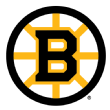
Organizational assessment: Boston gets a quality grade, although that's in part due to the bulk of high picks it had even though I thought some of its Day 1 picks were a reach. Day 2 was much less controversial, as the Bruins have really added to their system with several quality names, although I don't think they left here with a true top-end prospect.
Top pick: Zboril has a pretty well-rounded style but doesn't have one particular elite skill. His footwork is very clean, with an easy stride and the power to get up in the rush. Zboril doesn't have standout puck skills, but he's a very calm and efficient passer who makes plays when under pressure.
He uses his frame well to win battles and box out forwards and still has room to fill out. Defensively, he shows solid value. His positioning and reads aren't perfectly tweaked yet, as I've seen him get beat a little too much, but he makes stops and can kill penalties at a fine level.
Zboril joins a growing group of quality defensemen prospects in Boston since acquiring Colin Miller, as well today. Zboril will need time, but a player with his size and speed to combine with offensive skill makes him appealing for the long run.
More: DeBrusk is the second-best forward prospect in the system now behind Khokhlachev. His production was very impressive, and as a late birth date he should be in the pro ranks by 2016-17 and potentially pushing for a job not too long after that. Senyshyn is a little off-the-board pick, although his speed is among the best in the class. He works hard and has size, but I'm not sure I see a skill/hockey sense of that level.
Day 2 picks: Carlo is a big defenseman who plays a tough brand of hockey. He has solid enough hockey sense to anticipate some of the faster plays, and he knows how to transition the puck. His skating isn't fantastic, as his stride can be a little short, but overall he moves well for a big guy and has the puck skills to get up into the attack. He projects as a defensive blueliner with a chance at bringing offense, too.
Forsbacka-Karlsson is one of the best defensive forwards available in this year's class. He is great at faceoffs, gets in lanes pretty well and exhibits great work ethic. He will at times show the offensive ability to be a real creator, but projects more as a tough-minutes, middle-six type of player. He does have fine skating, and skill won't be a difference-maker at the pro level.
Lauzon is a really effective skater with impressive rushing speed; he has the ability to stick with quick forwards. He can be a little risky at times with the puck, but tends to make plays. Defensively, Lauzon plays the body and is a good poke checker.
Standing in at 6-5, Vladar's lower-body movements are as quick as those of a 6-1 goalie. When things are going well, Vladar is very quiet in the net and uses his big frame and lateral agility to square up a ton of pucks. However, he can get a little too energetic at times. Improving his reads to get his eyes on the puck a little faster will be critical.
Gabrielle shows spurts of highly skilled plays and dangerous offensive rushes, but for long stretches of the season he was also invisible. He's also pretty one-dimensional.
Hughes was a notable prospect for a few years. He has speed, skill, and plays tough even though he's not the biggest. He's not much of a top-end prospect right now, but he's worth a shot.
Columbus Blue Jackets | Grade: B+
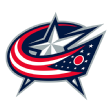
Organizational assessment: While I didn't love what Columbus did in taking Gabriel Carlsson at 29th overall, given the acquisition of Zach Werenski and several others, this was a strong class for them. Their non-first-round picks saw them acquire big, physical players with talent, as well as a high-risk high reward prospect in Veeti Vainio. Their defensive depth -- which was in dire need of help -- was stocked this weekend.
Top pick:Zach was one of the rare defensemen to play at the top of an NCAA lineup as a 17-year-old defenseman. Werenski is at the top of his game when he has the puck, whether it's on an outlet, bringing it up on the rush or controlling a power play. He makes a ton of plays offensively due to his skating and hockey IQ and never looks panicked when doing so.
He's pretty developed physically already, measuring in at 6-2 and 214 pounds, although he's not a very physical player. His defense isn't poor -- in fact, I'd say it's better than average -- but he can get caught making mistakes in his positional play. He's a potential top-four D-man who can also be a first-unit power-play option
The Blue Jackets understandably have tried to add to their defense group recently, given their elite group of young forwards from their past few drafts. Werenski becomes their best D prospect by light years.
Day 2 picks: Bittner is 6-4 but skates like he's 5-11. Bittner isn't a pure dangler, but he doesn't have rock hands, either. His shot is arguably high-end, as it comes off the tape with scorching velocity and he can locate it well. His hockey sense is bit of a question mark, but he shows good vision and creates scoring chances. He could be a scoring power forward in the NHL if his development goes well.
Stenlund impressed Swedish scouts I talked to this year about how comfortable he looked versus men. He's a big-body forward with some skill.
Kolesar has a really developed frame and is a competitor, which helped him be an ideal net-front guy on Seattle's power play. His skill level is average, with some flashes of a quick one-two move or evasion here or there, but he's more of a chip-and-chaser who battles.
Vainio is a very good offensive defenseman in how he can skate and join the rush, and he make plays from the point. He's definitely an offensively tilted player, though, who struggles with his own-zone reads and can be overly risky.
Gavrikov was named the best defenseman at the WJC and was even called to play for Russia's senior national team on occasion. Gavrikov is an impressive skater, has a pro frame and plays a rugged physical game. On the defensive end he's great, but his offensive skill is lackluster.
Ottawa Senators | Grade: B+
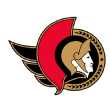
Organizational assessment: I would have preferred a few other players than Chabot or Gagne in the picks Ottawa took them, but if you look at the class in totality, there was a lot of talent added and diversity in the type of players the organization added to its system. The pipeline was weak coming into the weekend, and while it's not back to being elite as the Ottawa system was a few years ago, this was a very nice boost.
Top pick: Chabot is a very gifted skater who can outlet the puck well and is very dangerous off the rush. Chabot has impressive overall hockey IQ, especially offensively, as he sees the ice very well and is able to control the tempo.
His value is certainly offensively tilted, as he loves to join the attack and stretch the ice with his passes. But he's not entirely one-dimensional, as he can make some defensive stops, is physical and can be effective on the penalty kill. He'll need to continue to develop his defensive play, but he could be a two-way defenseman as a pro.
More: White is a great two-way center who came into the season as a player who was projected to go higher. The organization doesn't have a ton of talent down the middle, and White immediately changes that.
Team fit: Chabot is a much-needed boost on defense for the Senators organization providing a high upside, even if he has some kinks to iron out in his overall game. He becomes one of their top prospects right away and their top D prospect.
Day 2 picks: Gagne is a big, 6-5 winger with a solid offensive skill level with the puck. His feet are very heavy, though, with a slushy stride that needs attention technically. Chlapik is a skilled playmaker who displays very good hockey sense. His frame is pretty sturdy, and he shows a good power game in terms of puck protection and battling in the tough spaces. His speed is roughly average and his stride is a little awkward in terms of his push-offs. Wolnanin is a very good skater especially for a 6-1 player with decent puck moving skill, too. Ahl is a towering player, who can play at both ends and has a good physical game. His first few skating strides aren't the prettiest, but he gets where he needs to go and has the speed to push defensemen back. He creates by driving the tough areas, making players miss and has setup skills, too. He can force plays and get behind the pace at times. Jaros won't wow you with a big rush or dangle, but he's very smart. His gap control is quality, he wins battles and he moves the puck effectively.
Winnipeg Jets | Grade: B+
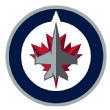
Organizational assessment: Winnipeg targeted skill and a lot of it, even without a top-10 pick, going after playing with speed and hands on both days of the draft. Their group of forward prospects is extremely impressive now when you consider Nikolaj Ehlers and Nic Petan to add to their haul.
Top pick: Connor has had multiple All-Star-caliber seasons in the USHL. He plays the game with energy and pace, and is a fantastic skater with a little giddy-up in his step. His hockey IQ and his skating allow him to be an effective defensive forward, as well.
He's not especially great as a dangler, but he's definitely above average in the puck skills category, with very quick hands. He likes getting to the net and is the kind of player to get the puck on the sideboards, make a move to make a defender miss, and either drive the puck to the crease or get a shot on goal.
Connor's USHL career has been unique and outstanding to date. He joins a great group of forward prospects in Winnipeg with Nikolaj Ehlers and Nic Petan and complements them well, as he's about pace and speed as opposed to east-west plays. Winnipeg can afford to take their time with him while their other prospects hit the NHL, as Connor heads to Michigan and they get four years to sign him.
Day 2 picks: Hockey sense is Harkin's best trait, as he is patient, anticipates the play well, has good vision and is creative with the puck. He has the pure skill level to score, as well as the grit and frame to kill penalties effectively. His skating isn't a giant hole in his game, but his stride is a little awkward with less than ideal extensions through his push-offs, as he bends over in an odd way, although his straightaway speed isn't an issue.
Foley jumped out when I scouted him at the All-American Prospects Game. Despite an average frame, he's very strong on the puck and drives the net effectively. His hand-eye coordination is impressive, and he can make some difficult skill plays. Foley must improve his pace and decision-making.
Spacek is a flashy and exciting offensive player. He sees the ice at a very high level, which makes him dangerous when he sets up with space. He's an agile skater who can be quite elusive and make defenders miss. Spacek plays the game with energy and good work ethic, but overall his physical game is less than impressive, and he doesn't look all that imposing when he engages in puck battles.
Niku underwhelmed this season after coming in with some hype. He skates and moves the puck well and defends OK, but his decisions aren't the best and his overall play is inconsistent.
Gennaro has tools in terms of his size to couple with decent speed and skill, but I don't love his hockey IQ.
Calgary Flames | Grade: B
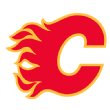
Organizational assessment: Calgary didn't have a ton of picks, but it used the ones they have well, getting a top-20 talent in my eyes in Oliver Kylington and a top-30 in Rasmus Andersson. The Flames took a couple other forwards with talent who are long-term prospects, with the bulk of their draft being the talent in defense they added to their system, never mind the acquisition of Dougie Hamilton.
Day 2 picks: Andersson is a dynamic offensive talent with great puck skills, especially for a player with a pro-sized frame. He has an aggressive, attacking style of play and loves to have the puck on his stick. The red flags are his lackluster defensive play in terms of his off-puck reads, up-and-down effort levels, being too aggressive offensively and his habit of getting beat with speed at times. His weight is also an issue.
Kylington's season was a little bumpy due to reassignments and injury, but he played at a high level in tough, pro leagues. He's a brilliant skater who gains speed easily and has the four-way movements to stay with quick forwards. Kylington is a very skilled puck-handler who makes a lot of creative plays and controls the puck in tight spaces as well as the best forwards in this class. He stretches the ice well and can control a power play very effectively. He has his warts, however, as he isn't the best in the physical aspects of the game in terms of effort or his frame, and his shot could be better. His defense can use some work, too.
Karnaukhov has an above-average, if not better, skill level with the puck and shows he can create offense with space. His physical game isn't the best, though, and scouts describe him more of a perimeter player.
Mangiapane's skating is excellent in all regards. His skill level isn't as high-end, but he makes a lot of plays. His defense isn't superb, but he's shown he can be an asset on the penalty kill. His physical game is the big question mark given his small frame.
Bruce is big at 6-6, but there's not much else to his game in terms of value at either end of the rink right now.
Colorado Avalanche | Grade: B

Organizational assessment: Colorado had a different style of draft than usual, targeting overseas players with skill. The Mironov pick, in my opinion, has the potential be a huge sleeper in this class. Players like him and Rantanen could potentially fast track to the league. This draft and the O'Reilly trade added a lot of skill to the system.
Top pick: Rantanen carried one of the worst teams in the Liiga this season despite being under 19. Rantanen is a big-bodied, 6-4 forward with tremendous skill and vision for a player his size.
He's not an overly physical player, but on occasion he'll drive the net and make the most of his size; unfortunately, that doesn't happen as much as you'd hope. His skating is roughly average, maybe a tick below out of the gate, although I've heard some Finnish scouts say they're not too concerned there.
Rantanen is interesting just due to how incredible he played versus men for the last half of the season, essentially carrying his very poor team some nights. He becomes Colorado's top prospect, in a team currently still rebuilding, he provides a scorer with size the Avalanche don't have in their organization. Rantanen is AHL-ready should the Avs choose to bring him over right away.
Day 2 picks: Greer is a big, strong winger who works hard, gets to the tough areas, and battles. He has a fine skill level especially for a big man, but I haven't loved his speed when I've seen him.
Meloche is an above-average skater who closes his gaps very well on his checks. Meloche is a very aggressive physical player who delivers punishing hits. He can kill penalties, though he could fix a read or two in his positioning. But he makes defensive plays. Meloche is a solid puck mover, and he gets a ton of shots through to goal due to his shooting skills and his hockey IQ.
Beaudin has pro size and worked his way up the line up over the course of the season. His hockey sense is a good attribute and has skill, too.
I didn't rate Mironov, because of lack of views this season, but I have been a fan for years. He's an intelligent two-way defenseman who can move the puck well. He's always played ahead of his age group and has excelled versus men.
Olhaver got people talking in the second half, as he's a 6-6 forward who skates well for his size and had flashes of impressive offensive skill. His creativity/IQ with the puck is lackluster, though.
Florida Panthers | Grade: B
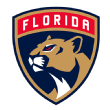
Organizational assessment: I liked the range Florida got Crouse in, and I certainly loved where they got a player like Denis Malgin, who has a lot of talent. The Montembault pick, even though I think he's a good prospect, was slightly early for me. I don't think this draft fundamentally changes Florida's system either way, but Crouse could be a guy who gets to the league quickly.
Top pick: Crouse is a player with fantastic physical gifts, and despite a lack of amazing statistical production, he's consistently impressive. He's an outstanding skater for a 6-4 forward and will be an above-average skater at the NHL level.
Crouse plays a tough brand of hockey, supplemented by his filled-out frame, and he projects as an elite physical player in the NHL. Crouse is very advanced defensively for an under-18 prospect, showing very good defensive awareness and penalty-killing skills. He's not a standout offensively, but he's above average in terms of puck skills and offensive ability; he just doesn't show it consistently.
Crouse has generated a lot of debate but versus his age group it's been no question he's a top prospect. He is the top prospect now in Florida's system and a player who could fast track within a year to the NHL. His defense is extremely good for a U-18, and he's built like a truck.
Day 2 picks: Montembault is a big goalie who has a lot of room to fill out, as he visibly doesn't cover as much net as he could. His movements are subtle in the net, and he gets square with the puck consistently. He's not an athletic stalwart, but his lower-body movements are at an above-average level. He also has no issue getting loud in his communication with his defensemen. He'll need to improve his angles.
Despite a filled-out frame, Schemitsch is not overly physical. On the other hand, he's got a great wingspan and consistently lands his stick checks. Offensively, he's a little above average.
Malgin has been a top prospect in Switzerland's program for a number of years. He's a pretty good skater, and his puck skills are fantastic, as Malgin can make offense out of nothing. He's a very good passer who can make a lot of tough dishes but can also try to be too fancy at times. He's small, and his fringe physical game restricts him, especially since he's not great defensively.
Bachman is not the biggest player, but he's a pretty good skater who works really hard and has a decent skill level but not outstanding there.
Wilkie has above-average skill and hand-eye coordination. He's not overly dangerous offensively, but he shows flashes of doing so. He skates fine, but not a blazer for a sub-6-foot player.
Los Angeles Kings | Grade: B
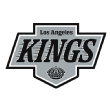
Organizational assessment: L.A.'s draft had a little mix and match. Erik Cernak and Austin Wagner have the "tools" you covet in a prospect and a player who could develop into something more. Alex Dergachev and Chaz Reddekopp are solid moderate-risk, moderate-reward types of prospects who are bland but effective.
Day 2 picks: Cernak's tool kit is extremely appealing, and he has a raw upside that's sky high. He projects to skate and handle the puck at above-average NHL levels. Cernak is also a physical defender who can make defensive stops. His main issue is his hockey IQ, as he shows a moderate frequency to make bad decisions on hits, pinches and puck decisions.
Dergachev is a two-way center with size. He's not going to dominate a power play, but his skill level is above average, with good hand-eye coordination for a player of his size. Dergachev is pretty good on defense and can handle tough assignments. He uses his big frame well to protect the puck, win battles and drive the net. His skating isn't great overall, and I'd peg his speed at about average.
Wagner is a very good skater with an explosive first step. He has fine size, defends well and shows flashes of skill. His offensive hockey sense is questionable, though.
Reddekopp has quality, four-way mobility, works hard and makes defensive stops. The points weren't great for him this year, but he showed at times he could move the puck well, too. He has untapped potential, in my opinion.
New Jersey Devils | Grade: B
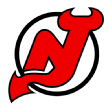
Organizational assessment: The Devils' system got a huge boost with the addition of sixth-overall pick Pavel Zacha. I didn't think the needle moved too much on Saturday for the Devils. I like Mackenzie Blackwood and Blake Speers, but there wasn't a huge surge of talent into the system on Day 2.
Top pick: Zacha's season was a little up and down this season and lost time due to injuries. All the tools point in the right direction for Zacha. He's a big, strong forward who uses his body well. He's a fantastic skater for a big man who can explode through the neutral zone.
He's also a pretty skilled playmaker who shows coordinated puck handling and the vision to make plays. Zacha's shot is notably above average with a ton of torque behind it. He'll need to improve his defensive positioning, but he does show effort to come back on D.
Zacha is the much-needed, top-end forward prospect this system has craved for the last couple of years. A high-variance pick due to a bumpy season, but one with such a desirable talent base. He immediately becomes New Jersey's top prospect, and its best since Adam Larsson. I suspect he'll be sent back to Junior next season.
Day 2 picks: With his big frame, Blackwood doesn't leave shooters much room to find corners. He's very economical with his movements in the net, and overall he displays a calm demeanor. His hockey IQ and butterfly technique are advanced for his age. Blackwood could be a little better on rebounds.
Speers is an above-average to plus skater and excels in tight spaces due to his agility and puck skills. A very smart two-way player, he creates a lot of chances from the side boards. He shows good effort on defense and is a decent penalty killer. His physical game is the obvious limitation.
Colton White skates and handles the puck well, but he's pretty one-dimensional now and struggles with physical play.
New York Rangers | Grade: B
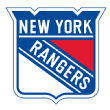
Organizational assessment: The Rangers didn't have a first round pick but still ended up having a decent draft. Ryan Gropp and Robin Kovacs are two high-pace forwards with skill and physicality. The Rangers system is somewhat thin, and this won't vault them forward, but adding something is better than nothing.
Day 2 picks: Gropp plays the game with speed, intensity, and has physical abilities that can make him a force. Gropp is strong on the puck, and can flash a top-end wrist shot, as well. He can kill penalties well, but that's less due to his anticipation and more about his frame, speed and intangibles. His decisions and pace need work.
Kovacs led Sweden's second-division circuit in goals and points by an under-20 player and was also the leading scorer on his pro team. He plays a fast-tempo type of game with his above-average to high-end speed and great work ethic. He shows a tendency to play the body and plays the game with an edge. At times, he could stand to slow the game down or show better creativity and decision-making.
Zborovskiy is a smart two-way defenseman with size. He skates fine for his size, too. I don't love the offensive skill, but I've seen him make some things happen on the powerplay due to his intelligence.
Saarela came into the season as a touted prospect. However, while he played well generally, he underwhelmed at times, hence the drop. He's a very skilled puck-handler and playmaker and can evade pressure effectively due to his skill and lower-body strength. His off-puck game needs work, as his defense and physical effort aren't the best.
Morrisson is a small and slight player, but he skates real well, with a jump in his step and pressures opponents. His game is built around pace.
Huska has been on the radar for a few years as a big goalie who can move laterally, but technically he could use a lot of improvements.
Tampa Bay Lightning | Grade: B

Organizational assessment: I definitely like the spots Tampa Bay got some of their picks such as Mitchell Stephens, Dennis Yan and Jonne Tammela, among others. They added a lot of high-upside players, which has become common under Steve Yzerman and Al Murray's time in Tampa.
Day 2 picks: Speed and pace define Stephens' game, as he's a fantastic skater whose speed is high-end. He has great work ethic on the ice, battling through checks well, getting to the net and coming back on defense with tenacity. Stephens kills off penalties pretty well and exhibits a lot of energy on the ice. He plays a fast yet smart game, as he makes fine decisions with the puck and can set up plays.
At his best, Spencer can be a very effective puck mover who is dangerous on the power play due to his skill and shot. He's very physical on his checks, with a well-developed frame for a draft prospect. Spencer makes defensive stops, but his D-zone play isn't completely clean, as he'll get beat on his positional reads here and there.
It's all about upside with Yan, as he's big, with a ton of offensive ability. When he has the puck, as he's very creative, shifty, patient and sees the ice well. Yan also features an above-average wrist shot. His physical game, skating and off-puck reads could use some work.
Cirelli showed well down the stretch, including a great Memorial Cup. He doesn't blow you away with skill and flash but has a tremendous motor, is very smart and has above-average hands.
Tammela is dangerous off the rush with his speed and impressive skill. He has also shown to be a short-handed threat. His size isn't ideal, but he battles hard.
Zuhlsdorf is a guy whose intrigued me. Above-average skater with good hockey smarts and has shown at the USHL level he can be fine defensively. He's just a small player at about 5-11.
Minnesota Wild | Grade: B-

Organizational assessment: The Wild's draft was up-and-down for me. Joel Eriksson Ek and Jordan Greenway went slightly higher than I'd take them, but I also really liked the value on picks such as Kirill Kaprizov and Gustav Bouramann.
Top pick: Eriksson Ek is a very versatile player and is a low-risk type of prospect. Eriksson Ek's hockey IQ is his best trait.
I wouldn't classify him as a dominant player, but whether he's playing in front of the net on the power play, creating from the side boards, killing off penalties, checking good players, taking a key draw or being the extra man when the team needs a goal, coaches always can rely on Eriksson Ek. His puck skills are solid, and his skating is about average, with his straight-line speed being stronger than his edges and bursts.
I discussed the fit of Eriksson Ek in Minny in my mock draft (at least I got one right this late in the game). He's a very good two-way player who fits into the design of the highly skilled young players Minnesota has acquired over the years. He can be the guy who can potentially take the tough minutes.
Day 2 picks: Greenway is somewhat raw, but has a lot of upside. Greenway is a bulky forward who uses his body well to win battles and protect the puck, and his offensive IQ shows very good flashes. Greenway skates and handles the puck well for a big man, although he's not top-end in either area.
Kaprizov's skating is above average and arguably plus. He's also quite skilled with the puck, but what stands out is his hockey IQ. He's not a fantastic defensive player but has value in his own end. If he isn't 5-9, I think you're talking about a very well-rounded player. His high level of play in the KHL was very noteworthy this season.
Boka is a very good skater in all directions, who plays a tough brand of hockey and kills penalties very well. His skill isn't null, and he can get up into a rush here or there, but it isn't his strength.
Bouramann is a very good puck-moving defenseman. His skating and vision grade as good to very good. Defensively, his reads are hit-and-miss, and he has a lackluster physical game.
Sadek is a very skilled and mobile puck mover but has to improve on his off-the-puck play and physical game, among other things.
Nashville Predators | Grade: B-

Organizational assessment: Nashville didn't have a high pick, but given where it did pick, I like a lot of the talent it was able to bring into the system. The players they selected have high levels of puck skills and hockey IQ, and a player such as Yakov Trenin has the skill to combine with a giant frame.
Day 2 picks: Trenin is big, string and tough on the puck, maintaining possession well in battles. He shows ability in the defensive zone and on the PK. He's more of a pass-first type of player but has a solid shot when he gets his opportunities. His skating remains rough, and while I've heard some scouts say they don't mind it, I see a lot of room for improvement in that area.
Novak has a very high skill level. He's very coordinated and creative with the puck, and he makes a lot of high-difficulty plays and creates scoring chances in bunches. He's a quick, elusive skater with good jump in his step, though one NHL scouted noted that his short legs keep him from exploding through the neutral zone. He needs to bulk up and work on his defense a fair amount, but he is a player with great offensive touch and has high upside.
Richard is a fantastic skater with the explosive first few steps and straight-line bursts to put defensemen on their heels. He's a smart playmaker who can play the point on the man advantage and has the creativity to gain the zone. There is a question of how his defense will translate to the pro level, especially without a bulkier frame.
Carrier is skilled puck mover with great overall hockey sense. He's small for a defenseman but still makes defensive plays in terms of his stick positioning and overall anticipation. His skating isn't too strong, and combined with his size, it doesn't help his defensive projection going forward.
San Jose Sharks | Grade: B-
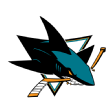
Organizational assessment: The Timo Meier pick was slightly high for me, but combining that with Jeremy Roy adds quality to the Sharks system. Asides from Roy, I didn't love their Day 2 picks. I see upside in a few of them, but I don't see a lot of legitimate NHL prospects.
Top pick: Meier had a pretty successful second season in North America, racking up a lot of points in Halifax. He's a versatile forward in that he can play center and the wing and can play on both special teams. Meier has a pro-sized frame, skates and handles the puck at above-average levels and can play with pace.
He shows a commitment to get back into the defensive zone. Meier can get tunnel vision with the puck at times, and overall he's not a true standout offensive talent, but the production this year was obviously very impressive.
Meier differs from recent forward selections such as Tomas Hertl and Nikolai Goldobin. He's a two-way force with size, speed, skill and a great motor. His offensive production was impressive this season, but I'm not 100 percent sure his role is that of a true top scorer in the NHL. His physical game and advanced D play could help him get to the NHL in a fair amount of time though for San Jose.
Day 2 picks: Roy is a good skater in all directions, with nice edge work and a quality top gear. His puck skills are clearly above average, and his puck movement is high-end. Roy is slightly undersized and could tighten his gaps defensively at times, but he makes some defensive stops and battles well. Roy is also the rare right-handed defenseman who plays the left side with higher frequency.
Robinson got some buzz this year due to his pure tools and upside, but as one NHL scout said on him: "A high school goalie is extremely risk."
Balcers flashes good speed and hands, but the Latvian isn't the biggest player.
Parsells got a lot of attention at high school games this year as a 6-6 defenseman who can skate and move a puck. Really, really raw and not the greatest competitor in one-on-one battles.
Vancouver Canucks | Grade: B-
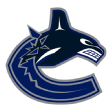
Organizational assessment: Vancouver got a nice mix of talent in this class. Brock Boeser in the first bring in skill and a great physical game. Guillaume Brisebois and Carl Neill are safer prospects, while Dmitry Zhukenov and Lukas Jasek have a lot of raw offensive tools to work with.
Top pick: Boeser is a good, physical player with a bulky 6-1 frame and a great work ethic. Boeser is strong on the puck in battles to help maintain possession, and he goes to the net with consistency. He has one of the better shots in this draft class and gets it off quickly with zip.
While he's skilled, he's not an overly flashy player; he's more of a read-and-react player who also has solid hand-eye coordination. His skating is about average and leans to being a little below that mark; it's not a huge liability, but he could gain an extra step.
Team fit: Boeser will join a group of strong forward prospects in Vancouver, providing a different dimension off the wing in terms of his shot and puck protection style.
Day 2 picks: Brisebois' hockey IQ is his best trait. His stick positioning, gap control and anticipation help him make stops, and he's a great penalty killer. Brisebois outlets the puck pretty well and has about average power-play skills. His hands aren't that great, but his vision helps him make plays.
Zhukenov is a very impressive prospect even though he just missed my top 100. He's skilled, creative, quick and can PK, too. His frame is just very underwhelming.
Carl Neill was a bigger-name prospect at one point, and while he hasn't trended up lately, he's a solid, quiet defensive defenseman with good hockey sense.
Gaudette has a very high skill level with some flash and dazzle to his game. For a not huge forward, though, I don't love his speed.
Jasek is a very good skater, with a quality skill level and a nice shot. He's not the best in terms of physical play, but he darts around the rink with good energy and skill.
Olson is a big defenseman with some skill, which makes him intriguing. He's not a high-end skill guy by any means, but Prince George would use him on a second PP unit and he'd fit in fine there.
C grades
Anaheim Ducks | Grade: C+

Organizational assessment: Despite this ranking, I did think Anaheim got some good prospects. Jacob Larsson, Julius Nattinen, Devan Siederoff and Troy Terry are all players I rate well, but none of them are players I rate very highly. I see a case for Larsson, and maybe I end up wrong about him, but for now I don't see a real top-end prospect added this weekend.
Top pick: Larsson has a lot of physical tools, moves effortlessly in all directions and evades pressure pretty well for a big guy. He's not an overly gifted puck mover but has solid to above-average skill. Defensively, Larsson can make some stops. He uses his body well to win battles and shows good effort in battles. He's not great in his own end, as he could clean up his reads, reactions and overall positioning. His skating allows him to make up for some errors.
In selecting Larsson, the Ducks get a toolsy, two-way defenseman who they can afford to wait a while on, given the changes to the CBA with European players. That will be a positive thing given all the good Anaheim prospects coming through the pipeline.
Day 2 picks: Nattinen is a big, skilled, two-way center and a very smart playmaker. His frame is developed for a player his age, and while he's not a real mean physical player, he can be strong on the puck. His main liability is his skating, which is notably below average at this point.
Gates has good mobility and can move a puck reasonably well. He's not top-end in any of those areas, but those positive puck-moving elements make him attractive.
Siederoff is undersized but contributes in a lot of areas. Sideroff is a few inches shorter than the average pro, but he has an edge to his game and will fight for pucks. He also exhibits fine two-way hockey IQ. He's a player on the rise.
Terry was a consideration for my top 100 and a late cut. He has very good speed, a fine level of puck skills, and can be dangerous off the rush. He's also an aware and hardworking defensive forward.
Ruggiero is a big, bulky defenseman who excels on the PK, but his feet are a little heavy and he brings no offense.
Detroit Red Wings | Grade: C+

Organizational assessment: I loved the Evgeni Svechnikov pick, I think he's a legitimate, high-end, offensive talent. Day 2 was less enthralling to me. I see the talent in Villi Saarijarvi and Chase Pearson, but there aren't guys I have real high hopes for. Saarijarvi I can see proving me wrong if his play at the end of the season is legitimate.
Top pick: Svechnikov is a 6-2 forward with a ton of talent who effectively switched to center in the latter months of the season. He's very shifty in tight, and can make lightning-quick moves to evade pressure. Svechnikov also uses his big frame well to protect the puck and doesn't shy away from putting physical pressure on his opponents. He sees the ice well, and has good touch on all his passes.
His skating isn't a standout attribute, but he skates fine as a bigger player. His defense is a notable "work in progress," and he doesn't at all seem like a player you're projecting into tough defensive roles as an NHLer. His upside is top-end, as you don't often see his combination of size, puck skills and offensive IQ.
The Red Wings system is officially stocked with the pick of Svechnikov, as he adds on to prospects such as Anthony Mantha, Dylan Larkin and Axel Holmstrom as legitimate top-end forward prospects. These are not your typical small, high-end skill guys Detroit is known for; they all have size and top-end scoring tools.
Day 2 picks: Saarijarvi really trended up toward the end of the season with a brilliant Under-18 performance. He's very small but is a very good skater and puck mover.
Van Pottelberghe has a good frame and moves well in the net. He shows the ability to anticipate pucks and make tough stops. His overall positioning and depth in the crease has looked off at times though and will need time to fine tune his game.
Pearson has size and skill, and when I've seen him his skating has looked fine, but I know scouts who point to that as an issue, as well as his defense.
Marsh is a decent two-way forward. He has speed, a good work ethic and a nice shot to couple with an OK skill level.
Pittsburgh Penguins | Grade: C+
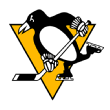
Organizational assessment: The Penguins didn't have many draft picks, so while I love where they got Daniel Sprong, in totality the talent added to the pipeline wasn't really significant, similar to their draft class last year. They've clearly shown they're "going for it" with the way they've moved picks.
Day 2 picks: Sprong is so fun to watch. He's an explosive skater who can push the tempo very well and has smooth mechanics to generate a lot of power from each stride. He has a high skill level with the puck, making a lot of difficult plays and displaying good coordination. He sees the ice well and regularly sets up chances for his teammates. He also has a very good shot, generating a lot of torque through his windups. Sprong needs to bulk up, work on his defense a bit and gain more consistency in his play.
Simon is a highly skilled forward with flash who was passed over last year but showed well during International events.
Tiffels has been passed over before probably due to his size. He's a shifty, agile skater who has the skill to be dangerous off the rush and on the power play.
Pavlychev is a 6-7 forward with above-average skill but really slow feet.
Dallas Stars | Grade: C
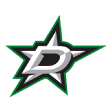
Organizational assessment: I'm slightly lower on Dallas' top-15 pick Denis Guryanov, but even if I wasn't, the core of their draft was pretty much him and Roope Hintz. Chris Martenet has talent, but he's a project. I like that they added forwards and scoring talent to their pipeline, but the additions weren't truly significant.
Top pick: Guryanov is an explosive skater and gets the highest of grades in terms of pure skating ability for a player his size. He pushes the pace very well and can be a lot to handle for defenders on the rush. He combines that with a good skill level, as he creates a lot of chances with his hands and vision.
His decisions with the puck aren't always great, but he does get involved a lot on offense. Guryanov is also a solid finisher, flashing an above-average shot. He's not a defensive stalwart, but he's solid in his own end -- closing on his checks effectively -- and has penalty-killing skills on top of being a short-handed scoring threat.
Day 2 picks: Hintz took significant steps forward this season. He is 6-foot-3, skates at an above-average level and gets through the neutral zone very well for a bigger player. He's a skilled puck-handler who displays impressive coordination with the puck for a player his size. Although he's big, he's not an overly physical player. He also still needs a fair bit of work defensively.
Martenet is a very big defenseman at 6-7 with decent offensive abilities for a big man in terms of joining the attack and moving the puck. His reads and reactions are pretty raw and have a lot of room to fill out.
Cecconi is a big D-man who skates at a fine level for a guy his size. He has some puck skills, too, but I've heard other scouts peg him as a low-upside guy. I think he has potential, but his decision and reads need work.
St. Louis Blues | Grade: C
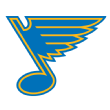
Organizational assessment: The Blues simply didn't have top picks, and it's hard to get top talent without those. I like Vince Dunn, and a few other prospects they got, but simply put they weren't in a position to succeed. Their current system has some high-end talent but remains somewhat thin.
Day 2 picks: There are very few defensemen who are better at leading a rush in the OHL than Dunn. His great skating allows him to make up for defensive miscues, as I've seen him catch guys such as Connor McDavid when they had a step on him. He's great on the power play given his creativity and puck skills. The drawback? His defensive play is certainly a work in progress.
A sturdy, two-way center, Musil is tough to get off the puck, and is adept at forechecking and in the D-zone. He likely won't blaze past NHL defensemen, but his skating has shown improvements in the past 12 months. He projects as a middle-six player in the NHL.
Gawdin is a solid to above-average skater with good technique and a quick first step. He's not overly flashy, but on occasion he shows a dynamic offensive element. Gawdin finishes his checks with authority, gets back on defense, and gets in the opponent's lanes consistently.
Opilka was up and down for the USNTDP. He would show you the ability to make tough saves or a smart play, but consistency was not there for him this season.
Dunda isn't the most naturally gifted puck-handler, but he's big, strong and works really hard to pressure opponents and regain possession.
Washington Capitals | Grade: C

Organizational assessment: If you draft a goalie high, you will earn my wrath. And I'm only half-kidding. Ilya Samosonov is very good, as is a player such as Jonas Siegenthaler, but due to position, and not too many quality names added, this is one of the more underwhelming Washington draft classes I can remember of late.
Top pick: Samsonov screams "upside" as a bigger netminder who moves like he's 5-10. Samsonov can make some very acrobatic saves, exhibits quick feet out of his butterfly and has a solid glove hand. He challenges shooters high in his crease, though he can get caught scrambling a little due to that aggressiveness. Samsonov's reads are fine, but they need some tweaking. Overall, he squares up a lot of pucks and exhibits good effort. He also didn't play a ton this year, so sample size is a bit of an issue in his evaluation.
After going high with a goalie last year in Vitek Vanecek, the Caps go higher to get a goaltender this season. Samsonov is dynamic, but I would not have bet on a goalie in Russia going this high without blow-you-away, incredible talent.
Day 2 picks: Siegenthaler is very physically mature already -- at 6-3, 220 pounds - and is a great skater for a player his size. He moves the puck well, displaying decent to solid offensive skill with fine vision on outlets and on the power play. Siegenthaler is solid defensively due to his feet and physical play. His reads in both ends could use some work.
I had Hobbs on my top 100 prospects in earlier drafts, but he was a late cut. He has a lot of upside but also had a very tumultuous season that made it hard to really buy on him. Skating is a problem, but skill, creativity and shot are a plus.
Chicago Blackhawks | Grade: C-

Organizational assessment: Chicago didn't pick until 54 -- I like Graham Knott, whom they got there, and they acquired a few other decent names. Nobody they got really moves the needle for me as of now, though, and their system isn't unchanged, but my perception of their pipeline is roughly the same as it was a few days ago.
Day 2 picks: Knott has great physical tools, with above-average skating abilities. He's a pretty advanced defensive player, and is a solid penalty killer. Knott has decent puck skills and IQ, but I wouldn't characterize him as an overly skilled or creative player. He's at his best when he's skating hard, going to the front of the net, and making simple plays.
Gilbert shows fine mobility and puck moving for a 6-2 defenseman. He's not a standout in either end, but roughly average at both.
Ryan Shea is a good puck-moving defenseman who can be dangerous on a rush, but his defense has a lot of work left.
Bondra is a bulky 6-5 forward with skill and pretty advanced defensive awareness for his age. His skating is a major hole though, with a slushy stride and lacks power.
Radke has size, grit and an average to solid-average amount of skill. His skating isn't horrid, but you can see a little lag in his step.
Dahlstrom is a smart defensive forward with quality skating ability.
Montreal Canadiens | Grade: C-
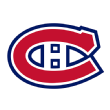
Organizational assessment: My opinion of Noah Juulsen the past few weeks has shifted to where I completely buy where he went for the Habs. That is not the basis of the grade. It is really more that I think they got a pretty-good-but-not-great prospect (which one expects in the late 20's) but really didn't like their Day 2. I'm not saying some of those prospects couldn't potentially hit, but there's nobody there I'd be willing to bet on.
Top pick: Juulsen has above-average mobility and puck-moving skills, which is why he was a mainstay for Everett all season on the power play. Juulsen plays a good physical game, which should get better as he puts on more bulk. However, he can be overly aggressive at times, and leave his ideal defensive position. Overall, his defensive-zone play is about average. Every year there are one or two prospects whom I would substantially re-rank weeks after my top 100 posts in May after talking to hockey people. Juulsen is that guy this year; he's a top-50 prospect currently for me but outside my top 30.
Day 2 picks: Vejdemo is a big forward with a decent offensive skill level and solid defensive awareness. He's been passed over once.
Bradley showed a solid amount of puck skills and coordination with the puck and has a decent frame too.
Addison skates fine, works hard and features an above-average shot, too. I'm not too sold on his offensive creativity.
